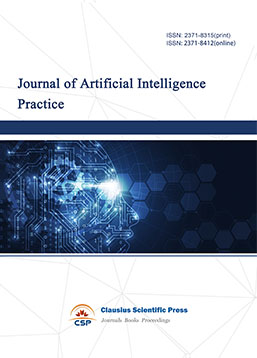Review of Public Opinion Sentiment Recognition Technology
DOI: 10.23977/acss.2025.090213 | Downloads: 13 | Views: 859
Author(s)
Sijie Cao 1
Affiliation(s)
1 Department of Economics and Management, Nanjing University of Science and Technology, Nanjing, China
Corresponding Author
Sijie CaoABSTRACT
With the rapid development of the internet and social media, public opinion sentiment recognition has become a crucial research topic. This paper first introduces the background and significance of sentiment recognition technology, followed by a comprehensive classification and analysis of single-modal and multi-modal approaches in public opinion sentiment recognition. Single-modal research primarily focuses on textual data analysis, employing techniques such as sentiment lexicons, machine learning, and deep learning for emotion classification. Multi-modal research enhances the accuracy and robustness of sentiment recognition by integrating information from diverse modalities, including text, audio, and visual data. Although existing technologies have achieved notable progress, challenges remain, such as difficulties in processing complex emotions, limited model interpretability, and insufficient generalization capabilities. Future research should prioritize multi-modal data fusion, fine-grained sentiment classification, and improvements in real-time processing and model interpretability to better support enterprise decision-making and social governance.
KEYWORDS
Public Opinion Sentiment Recognition; Text Recognition; Single-Modal Analysis; Multi-Modal FusionCITE THIS PAPER
Sijie Cao, Review of Public Opinion Sentiment Recognition Technology. Advances in Computer, Signals and Systems (2025) Vol. 9: 108-112. DOI: http://dx.doi.org/10.23977/acss.2025.090213.
REFERENCES
[1] Li Min. Research on governance of public health events in urban communities based on resilience perspective [D]. Fujian Normal University,2023.
[2] YUAN Qiongfang. Research on emotion recognition of online public opinion on public emergencies based on deep learning[J]. Computer Knowledge and Technology,2023,19(07):42-44+48.
[3] ZHANG Haitao, WANG Dan, XU Hailing,et al. Research on microblog opinion sentiment classification based on convolutional neural network[J]. Journal of Intelligence,2018,37(07):695-702.
[4] TONG Shisong, LIAN Liping, HE Chenglong, et al. A kind of sentiment recognition of public opinion information based on Bert and Bi-LSTM[J]. Network Security Technology and Application,2021,(07):57-59.
[5] PAN Hongpeng, WANG Dong, LIU Zhongyi, et al. A study on collaborative two-way coding opinion comment sentiment analysis considering irony semantic recognition[J]. Journal of Intelligence,2022,41(05):99-105+111.
[6] You Lan, Zeng Han, Han Fanyu, et al. Emotion semantic recognition based on BERT-BiGRU integrated learning[J]. Computer Technology and Development,2023,33(05):159-166.
[7] MENG Wei, ZHANG Li. Research on the strategy of semantic sentiment analysis in online public opinion content based on artificial intelligence technology[J]. Science and Technology Communication,2020,12(14):165-167.
[8] FAN Tao, WU Peng,CAO Qi. Research on multimodal fusion netizen sentiment recognition based on deep learning[J]. Journal of Information Resources Management,2020,10(01):39-48.
[9] ZHANG Jinmin, LI Xufang, FAN Dijun. Sentiment analysis of multimodal online public opinion based on BiGRU model[J]. Intelligent Computer and Application,2024,14(01):191-193+199.
[10] Chen J, Ma J,Li X, et al. Research on multimodal emotion recognition based on DR-Transformer model[J]. Intelligence Science,2022,40(03):117-125.
[11] WEN Peiyu, NIE Guohao, WANG Xingmei, et al. Research and application of multimodality in emotion recognition[J]. Applied Science and Technology,2024,51(01):51-58+97.
[12] Li Hui, Pang Jingwei. Research on multimodal Internet user sentiment recognition based on text-graph-audio fusion[J/OL]. Data Analysis and Knowledge Discovery,1-17[2024-09-19].
[13] Ruyun Yang, Jing Ma. A feature-enhanced multimodal sentiment recognition model incorporating knowledge and Res-ViT[J]. Data Analysis and Knowledge Discovery,2023,7(11):14-25.
[14] WU Peng, YING Yang, SHEN Si. Research on the classification of netizens' negative emotions based on bidirectional long and short-term memory model[J]. Journal of Intelligence,2018,37(08):845-853.
| Downloads: | 43054 |
|---|---|
| Visits: | 931602 |
Sponsors, Associates, and Links
-
Power Systems Computation

-
Internet of Things (IoT) and Engineering Applications

-
Computing, Performance and Communication Systems

-
Journal of Artificial Intelligence Practice

-
Journal of Network Computing and Applications

-
Journal of Web Systems and Applications

-
Journal of Electrotechnology, Electrical Engineering and Management

-
Journal of Wireless Sensors and Sensor Networks

-
Journal of Image Processing Theory and Applications

-
Mobile Computing and Networking

-
Vehicle Power and Propulsion

-
Frontiers in Computer Vision and Pattern Recognition

-
Knowledge Discovery and Data Mining Letters

-
Big Data Analysis and Cloud Computing

-
Electrical Insulation and Dielectrics

-
Crypto and Information Security

-
Journal of Neural Information Processing

-
Collaborative and Social Computing

-
International Journal of Network and Communication Technology

-
File and Storage Technologies

-
Frontiers in Genetic and Evolutionary Computation

-
Optical Network Design and Modeling

-
Journal of Virtual Reality and Artificial Intelligence

-
Natural Language Processing and Speech Recognition

-
Journal of High-Voltage

-
Programming Languages and Operating Systems

-
Visual Communications and Image Processing

-
Journal of Systems Analysis and Integration

-
Knowledge Representation and Automated Reasoning

-
Review of Information Display Techniques

-
Data and Knowledge Engineering

-
Journal of Database Systems

-
Journal of Cluster and Grid Computing

-
Cloud and Service-Oriented Computing

-
Journal of Networking, Architecture and Storage

-
Journal of Software Engineering and Metrics

-
Visualization Techniques

-
Journal of Parallel and Distributed Processing

-
Journal of Modeling, Analysis and Simulation

-
Journal of Privacy, Trust and Security

-
Journal of Cognitive Informatics and Cognitive Computing

-
Lecture Notes on Wireless Networks and Communications

-
International Journal of Computer and Communications Security

-
Journal of Multimedia Techniques

-
Automation and Machine Learning

-
Computational Linguistics Letters

-
Journal of Computer Architecture and Design

-
Journal of Ubiquitous and Future Networks


 Download as PDF
Download as PDF